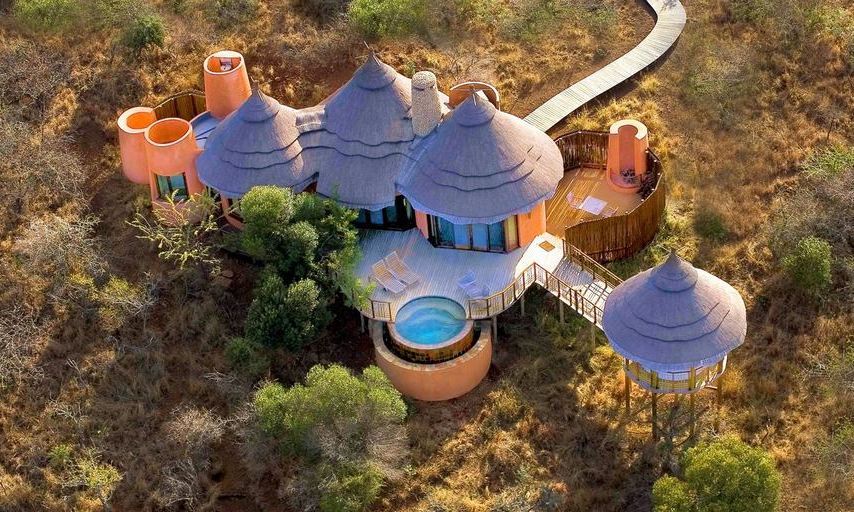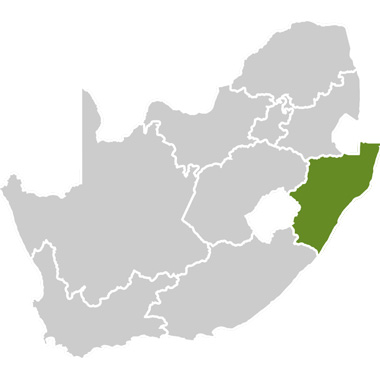The north-western section of the Elephant Coast is a land full of history. This section stretches from the town of Mkuze and the Mkuze Game Reserve northwards alongside the Swaziland border to the Thembe Elephant Park and Ndumu Game Reserve in the north. On the border of Pongola Nature Reserve, Lake Jozini offers boat game-viewing and is a prime tiger fishing destination.
High upon the Lebombo Mountain Range with spectacular views overlooking a 500m drop into Swaziland, the first known inhabitants of the Elephant Coast took residence in the Border Caves some 200 000 years ago. These caves are an archaeological gem as they are one of the few places in the world with a continuous stratigraphic record which provides some of the oldest evidence of human evolution in Africa. An interpretive centre shares the story of prehistoric life at the site, and guides are available to take visitors to the cave.
Ubombo is an isolated little post perched on a summit on the Lebombo Mountains with wide panoramic views east, west and south. Connected to the outside world by two passes, it was established in 1890, when the British annexed the tribal areas of the Nyawo and Mngomezulu people who lived on the plateau summit of the Lebombo Mountains.
Dingane’s grave – located near the Hlatikhulu Forest is the resting place of King Dingane, successor to the famous Zulu leader, King Shaka. Dingane was forced into excel by his half-brother, Mpande, from his royal Kraal near Ulundi.
Ndumu Game Reserve is well known for an abundance of birdlife (the highest count in South Africa at some 430 species), including many East African species at the southern tip of their range. Entomologists (and children) will delight in the array of insect life.




